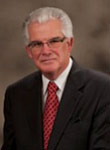With the exception of the Lord Jesus, the prophet Elisha worked more miracles in his lifetime than any other person. In all twelve recorded miracles of Elisha there was a common characteristic—the power of life overcame the power of death.
The ministry of Elisha proves the life that overcomes death is also the resurrection of life. It is important to understand how the miracle ministry of Elisha began. Shortly after Elijah and Elisha crossed the Jordan River, Elijah was taken to heaven in a whirlwind, at which time his mantle fell upon Elisha. Since Jordan represents death, it is noteworthy that this ministry of life overcoming death started after Jordan was crossed. This is the Biblical principle of how life overcomes death, and how the mantle of spiritual enduement comes upon the followers of Jesus.
Another fact of Elisha’s significance to us in having a life that overcomes death, concerns the relation between his lifetime and present time. Then, as now, people had departed from the faith—it was a time of far-reaching apostasy. Elisha’s ministry was during the time leading up to the judgment that culminated with the disintegration of the Northern Kingdom of Israel. God had sent Elijah, Elisha and Jonah to warn the people about the impending judgment. Each of these prophets had a miracle message and ministry that life would overcome death. Both Elijah and Elisha raised the dead. Jonah’s message and ministry was different in the respect that, in a symbolic way, he died and reemerged in resurrection. It was sad to say, but Jonah’s countrymen were so married to idols and sin that they remained unmoved by all of the miraculous signs of God. God showed them that even though they were dead (nationally), He could raise them from the dead if they repented and returned to Him. But as a nation they rejected God until He said through Hosea the prophet, “Ephraim is joined to idols; let him alone” (Hosea 4:17). Today we also live in perilous times and there is a super crisis ahead. God is searching for believers living in the power of His resurrection, so that death may be overcome by His life.
The first meeting between Elijah and Elisha is recorded in I Kings 19:19-21. The moment the mantle of Elijah fell upon Elisha he understood it to be a call to discipleship. He would follow God in the face of present, popular apostasy. He must be the sign of a true believer in God to all people. He accomplished this by never returning to his old life. He was also active in the work of God in spite of all that was required of him.
There is no living in the “power of his resurrection” (Philippians 3:10) without a consistent separation from the flesh. James said, “Know ye not that the friendship of the world is enmity with God? Whosoever therefore will be a friend of the world is the enemy of God.” (James 4:4) The Apostle John wrote, “Love not the world, neither the things that are in the world. If any man love the world, the love of the Father is not in him” (I John 2:15). To the Corinthians, Paul said, “Come out from among them, and be ye separate, saith the Lord, and touch not the unclean thing: and I will receive you, and will be a Father unto you, and ye shall be my sons and daughters, saith the Lord Almighty” (II Corinthians 6:17-18).
It is evident in the testimony of Elisha’s life, after his surrender to do all that Elijah told him to receive the double portion of God’s Spirit, there was yet another experience for him. Elisha could not carry on Elijah’s work without the same power of God that Elijah experienced. This power would overcome the pull of death that was around him. Elisha was determined to never let the man of God (Elijah) out of his sight until he received the power. He would not allow the prophet to leave him or to be discouraged by other voices.
On many different occasions the words “they two” were used to describe how carefully Elisha followed after Elijah. Elisha told Elijah, “As the Lord liveth and as thy soul liveth, I will not leave thee” (II Kings 2:6). Together they stood by Jordan and together they crossed to dry ground. It was on the other side of Jordan where Elijah was translated.
This is an important fact, because of what Jordan typifies. Today we liken Jordan to death, but in biblical typology, the River Jordan typifies our union with Christ in His death. Only when we are able to say, “By our union with Him in His death we want nothing but the Will of God at all costs, can God use us.
When Elisha told Elijah he wanted a double portion of the Spirit of God as he had, Elijah told him it was a hard thing he desired. But if he met the conditions he could have the desire of his heart. Some people wonder why their prayers are not answered. It is because they are praying on the wrong side of Jordan. If God can get us to pass through the waters of death, then He will give us what we ask of Him. Death will be overcome by life.
While Elijah and Elisha were on the other side of Jordan, a whirlwind and chariot of fire took Elijah away. As Elisha watched, the mantle of Elijah falls on him. The mantle is now Elisha’s. Elisha now has the same blessing and spirit which rested upon Elijah. The double portion of the Spirit has come at last. Elisha took up the mantle that fell from heaven. He passed through many temptations, trials, and dangers. Elisha takes the mantle and smites the Jordan and it rolled back as it had for Elijah. It is only now that Elisha’s ministry becomes one of life that overcomes death. We have crossed our Jordan and received an enduement from on high. If we continue to pray and spread the Word of God, we can live and work in the “power of His resurrection” and overcome the pull of death.

